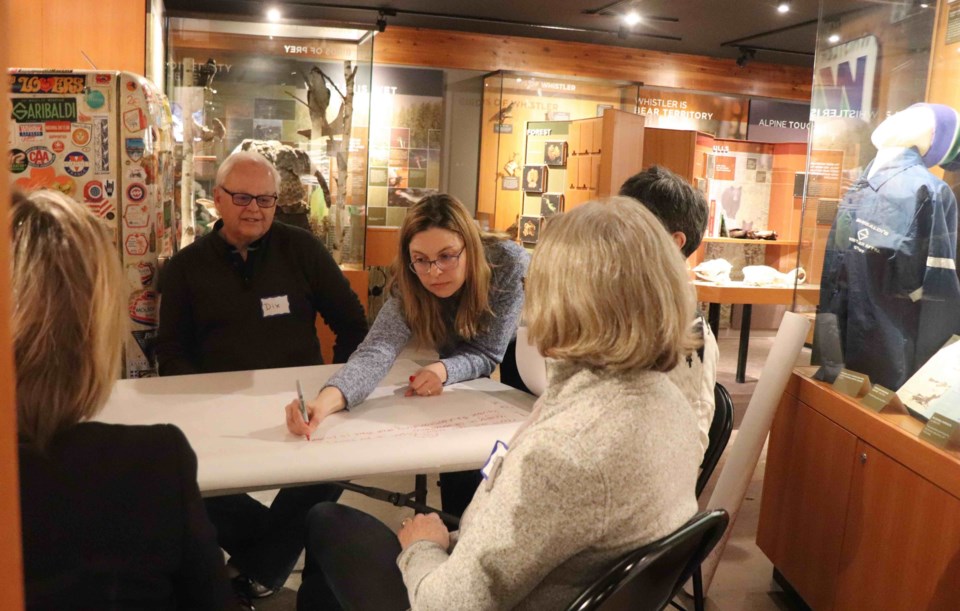Melanie Tardif lived in a cabin in the woods because that was all she could afford for awhile.
"I had to take four extension cables from a nearby lodge and it would power the lights, maybe the kettle and my cell phone," she told those gathered for the Community Foundation of Whistler's (CFOW) conversations series, Vital Café, Feb 19.
"I would haul in water every day (to the cabin) ... I would collect water bottles and fill them all up when I was in the village."
Tardif, who ran for council in last October's municipal election, also remembers waking up "in the middle of the night freezing," as the cabin's wood stove was so small it could not burn overnight.
This was just one of the stories shared last week at a Vital Café event titled, Yes there IS poverty in Whistler.
"The number of individuals we see who are facing precarious housing situations: homeless, couch-surfing, paying over 50 per cent of their income towards rent, or in unsafe housing has been on the rise (in Whistler)," said Sara Jennings, one of the guest speakers at Vital Café, and the coordinator of Whistler's food bank.
Given markers and sheets of paper, the Vital Café participants split up into smaller groups to discuss three big questions around poverty: What does poverty mean to you; Why is it important that we discuss poverty in Whistler; and, how can I help reduce poverty?
Participants eagerly engaged in discussion, with some groups outlining the significant gap in the demographic affected, while other groups talked about the different forms of poverty.
A recurring topic was how Whistler is often perceived as a "wealthy" community when, in fact, according to the latest Vital Signs report, 39 per cent of permanent residents report income levels below living-cost levels. It is estimated that 11 per cent of Whistler residents live in poverty.
Vital Café conversions are taking place every third Tuesday of the month until November. Each month a new conversation is started on topics such as climate change, education, reconciliation and more. The cafés are inspired by the United Nations' Sustainable Development Goals.
"(For each Vital Café conversation) we are partnering with a community group because we are trying to get different groups to come in and share their knowledge and their perspective to get people in that mind space and getting people to dive deeper into a conversation," said Carol Coffey, the CFOW's executive director.
Said Libby McKeever, who attended the Feb. 19 café, "It is about getting everyday people, who maybe don't know each other-in fact, it's better if they don't know each other-to hear other opinions about a topic that sometimes you don't even think about.
"(Vital Café) is bringing to the forefront issues in the community and you share ideas to possibly find solutions."
To sign up for Vital Café's Mar. 19 event titled No Community Without Learning, No Learning Without Community, click here.
Suki Cheyne from the Whistler Learning Centre will help lead a discussion on learning within a community context starting at 5 p.m. at the Whistler Museum.




